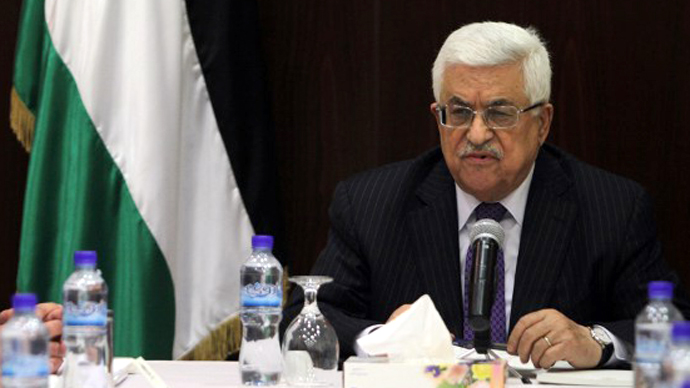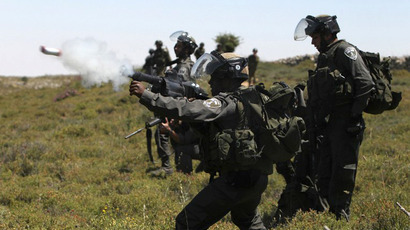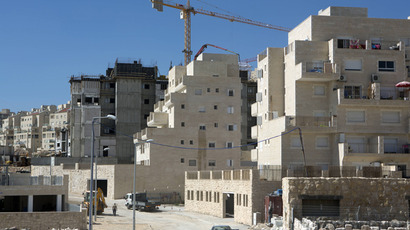Israel West Bank settlement construction at 7-yr high
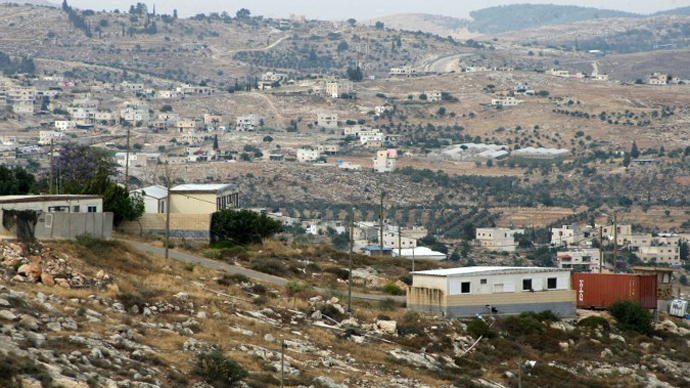
Israeli settlement construction on the West Bank has accelerated to a seven-year high as Israel and the Palestinians face lingering diplomatic obstacles to peace negotiations.
Israeli NGO Peace Now released a report detailing the
construction activities in the first quarter of 2013 on Sunday,
saying that "between January 2013 and March 2013, construction
of 865 new housing units began." It adds that “If compared
to the final quarter of last year (October-December 2012), this
is an astonishing 355 per cent increase."
In the meantime, US Secretary of State John Kerry readies his
fifth trip to Israeli and Palestinian lands in order to broker
negotiations between the two, which have been at an impasse for
three years now. Kerry had said the week before that time was
running out for a peace deal and that he feared that if this
attempt fails, there may not be another chance to get Israel and
the Palestinians talking.
Kerry has had to postpone his latest Israeli trip due to a White
House talk on Syria, according to an official statement to AFP.
Official and media sources said Kerry was supposed to meet with
Israeli President Shimon Peres on June 11, but one source then
added that the delay had been put in place to allow more time for
Palestinian President Mahmoud Abbas to decide if he wants to stop
insisting that Israel put a hold on their settlement expansion.
The Palestinian pre-conditions for talks hinge on the Israelis
stopping their settlement construction in the West Bank –
something Israeli President Benjamin Netanyahu says he cannot,
and will not, do. While the Palestinian Authority urges that
everyone remember the borders that existed between the two before
the 1967 War, when Israel took control of Gaza and the West Bank
– Netanyahu demands talks “without preconditions,”
refusing to stop building settlements.
Peace Now adds to the Palestinian argument, saying that "any
government committed to peace would not allow, nor continue to
build settlements that inevitably harm the chances for
peace." It goes on to say that, "These findings provide
further evidence of a continuing government policy to prioritize
settlement expansion."
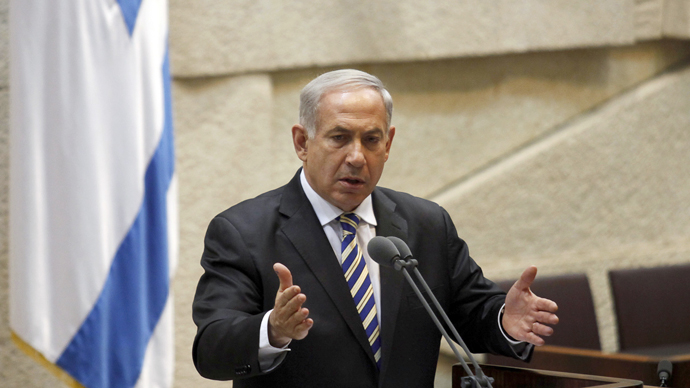
Netanyahu has occasionally clarified his position on the
settlements, saying he does not believe the matter of the
settlement housing 360,000 Israelis to be an obstacle to
negotiations – though he admitted that withdrawing from smaller,
isolated settlements is an option.
"We need to be smart not just right," Netanyahu told MPs.
"Settlement in the blocs will not significantly affect the
ability to reach an agreement."
He went on, however, to say that sharing a country with the
Palestinians was out of the question. "If we go into direct
negotiations, it is likely to be very hard, but the alternative
of a bi-national state is one we do not want," Netanyahu
said.
Speaking on the possibility of a two-state solution, which he
advocated back in 2009, Netanyahu said he imagined the agreement
"will be based on a demilitarized Palestinian state that
recognizes the Jewish state, and on firm security arrangements
based on the [Israeli Defense Forces]."
Abbas’s cabinet retorted that Netanyahu’s words were themselves
preconditions and that he was trying to leave Abbas without a
choice in the matter.
"It is very clear that the comments of Netanyahu and his government show that he is preparing to place the blame on President Mahmud Abbas," a Palestinian official told AFP. "This is the start of trying to shift responsibility for the non-resumption of negotiations to the president and the Palestinian leadership."
